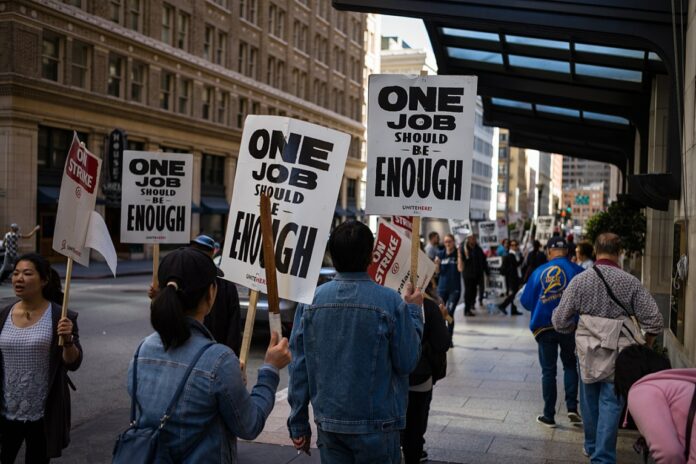
Recently trade unions have been in the news frequently related to unionisation happening in the United States. However, in South Africa, there is a long and robust history of trade unions. They have always been an important part of the South African political and economic landscape. But what exactly are trade unions and where do they fit into South African society?
This is part one of a series that will look at trade unions in South Africa.
Firstly, what is a trade union?
The short and simple explanation is that a trade union is an organisation formed by workers in the same or similar industry. It is meant to work for the common interests of its members. These common interests include fair pay, equal and good working conditions and other such benefits. The trade union is meant to provide a link between management and workers. It is so that workers do not have to fight and negotiate for better working conditions and so on. Instead they have an organisation who are legally bound to protect their rights. It is a collective bargaining voice that can be used in front of the management of a company or the entire industry.
Trade unions do not operate only for a single company. Instead they usually operate for an entire industry. This is why there are times when an entire industry or sector will go on strike due to a breakdown in negotiating between the trade unions and the industry players. Trade unions are membership-based organisations. This means one of the trade union’s primary functions is to look after the needs of its members. This means listening and taking into consideration members and their views during negotiations and other decision-making processes.
While trade unions have existed for many years in South Africa, it was in the post-1994 period that they were recognised within the South African constitution. Trade unions
RELATED:
The Weekly Dissident: Allan Kolski Horwitz on poetry and trade unions
Trade Unions within the South African constitution
Trade unions in South Africa were recognised within the 1996 constitution. It provided for the right for workers to join trade unions and for unions to collectively bargain and strike. In Chapter two in the Bill of Rights, section 23 deals with labour practices and mentions trade unions. It says that everyone has the right to fair labour practices which includes forming and joining a trade union. Every worker has the right to join a trade union. The section also says that every trade union has the right to engage in collective bargaining.
The Labour Relations Act of 1995 established the legalities and working framework for unions and employers. It aimed to regulate the organisational rights of trade unions. Additionally, the act aimed to provide for a simplified procedure for the registration of trade unions and employers’ organisations. Along with the legislation aimed to ensure fairness, three organisations were created to advance workers’ rights. These are the National Economic Development and Labour Council (NEDLAC), the Labour Court, and the Commission for Conciliation, Mediation and Arbitration (CCMA).
Trade unions and registration
While any worker can register to join a trade union, another important question is how do trade unions start in the first place. The Labour Relations Act guides the registration of trade unions. It explains in detail the requirements for the registration of a trade union. The act says that any trade union may apply to the registrar for registration if they meet four initial requirements.
These are:
- it has adopted a name that meets the requirements of subsection (4);
- it has adopted a constitution that meets the requirements of subsections (5) and (6);
- it has an address in the Republic; and
- it is independent
The act then explains the other facets of the registration process. In South Africa, there are many different trade unions.
The next part of the series will look at the different trade unions in South Africa and their histories.








